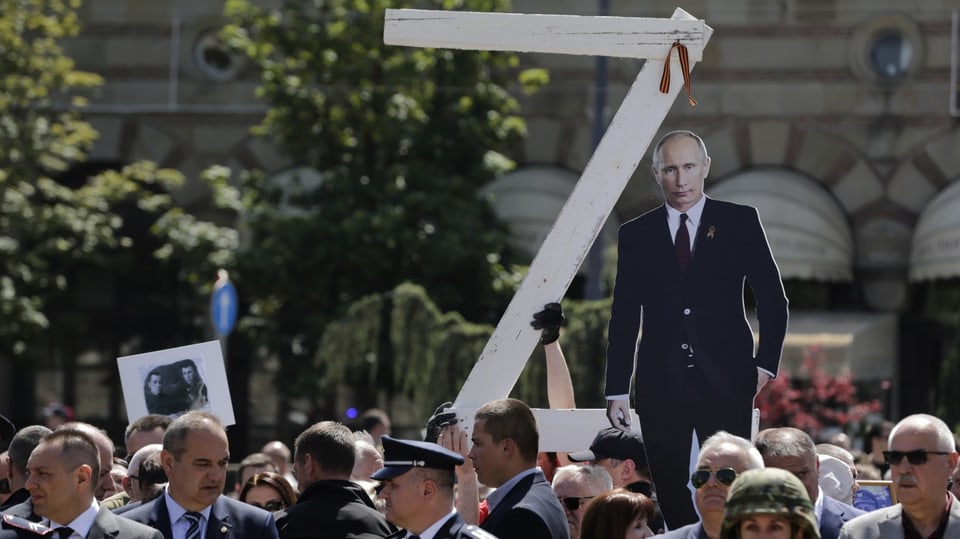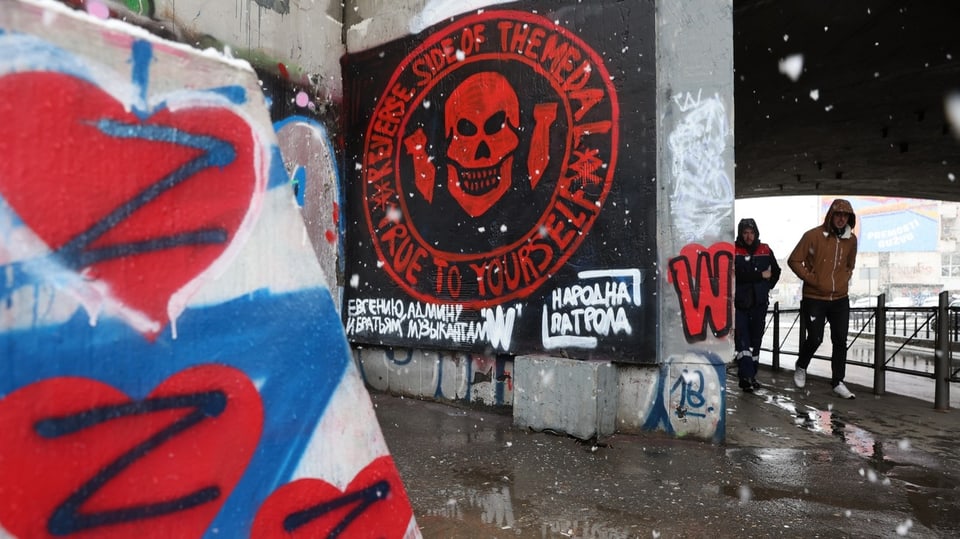Contents
Tens of thousands of Russians critical of the Kremlin have emigrated to Serbia. They prefer not to talk about Putin and the war there.
Serbia is experiencing a small economic boom: the reason for this is the more than 200,000 Russians who have emigrated to Serbia since the beginning of the war. Most are critics of President Putin or people who didn’t want to go to war.
Belgrade approved the UN resolution against the Russian invasion. However, since Serbia has not joined Western sanctions against Russia, Russian citizens can enter Russia freely.
Legend:
In addition to the visa-free status, Russians also quickly receive a residence permit if they set up a company or find a job in Serbia. In addition, the cost of living is relatively low.
Keystone/Darko Vojinovic
Most of the emigrants are men – and they are very welcome in Serbia: “Most of them are well educated and quickly gain a foothold in Serbia,” reports Peter Balzli, SRF’s Eastern Europe correspondent. “And Russians are generally very popular in Serbia.”
Serbia traditionally maintains close ties to its Slavic sister state, Russia: there are family ties in terms of language and culture, and the common Orthodox religion forms a social bond between the people. This old friendship also broke out during the Yugoslav wars when Russia sided with the Serbs. “Especially when NATO bombed Belgrade in 1999,” as Balzli recalls.
Polite talking past each other
However, many Russians do not support Putin’s policies. This is in contrast to various Serbian tabloids, which publish unfiltered narratives of the Kremlin – for example that Ukraine must be “denazified” like Germany “Tagesschau” last reported.
Balzli speaks of a paradoxical situation: “Most of the people entering Russia have fled because they are against Putin and the war or because they don’t want to be drafted. At the same time, they know that the majority of Serbs support Putin and his war.”

Legend:
Serbian nationalists openly show sympathy for the Russian war of aggression in Ukraine. For example, on last year’s Victory Day on May 9th, when Russia and Serbia commemorate the end of World War II.
Keystone/EPA/Andrej Cukic
The war in Ukraine and Putin’s rule are not subjects that expatriate Russians peddle. They would even try to avoid talking about it, says the SRF correspondent. “As a result, the locals and the immigrants mostly politely talk past each other to avoid tension.”
In Russia, the “Z” is ubiquitous as a sign of support for the Russian invasion of Ukraine. According to Balzli, it can now also be found everywhere in Serbia. Occasionally there are conflicts when Russians critical of the Kremlin spray-paint the war symbols or even demonstrate publicly against the war.

Legend:
There are also other dubious graffiti in Belgrade: Here, for example, the logo of the notorious Russian mercenary group Wagner on an underpass.
Keystone/EPA/Andrej Cukic
Such expressions of displeasure should not only be noticed by the locals. According to Balzli, Russian secret agents who were expelled from Western Europe have also settled in Serbia. There they would now spy on their countrymen.
Our mind is in Europe, our heart is in Russia.
The SRF correspondent concludes that the fact that Russian dissidents are cavorting in Serbia has no negative impact on relations between Belgrade and Moscow. “Relationships are and will remain good.”
An expression of the brotherly relationship is the quip of the Serbian President Aleksandar Vučić: “Our mind is in Europe, our heart is in Russia.” Serbia’s foreign policy relationship status is currently obvious: complicated.
